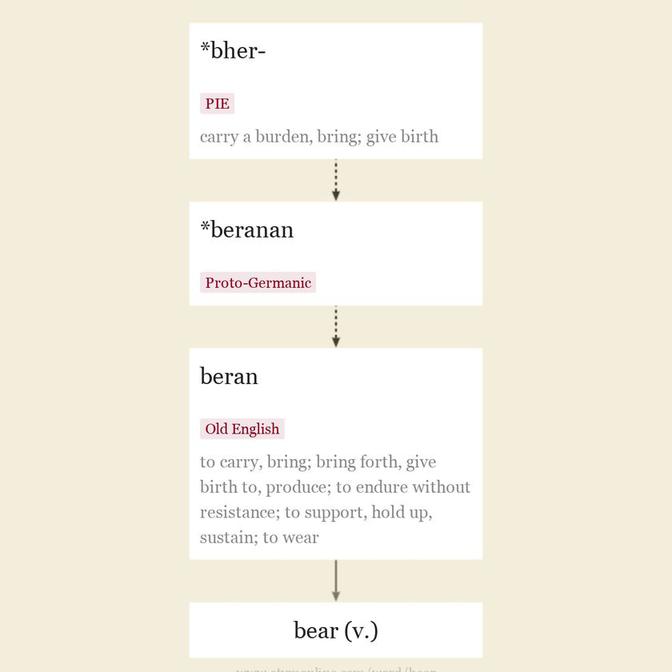child-bearing n.
also childbearing, "
Entries linking to child-bearing
Old English cild "
The wider sense "
The difficulty with the plural began in Old English, where the nominative plural was at first cild, identical with the singular, then c.975 a plural form cildru (genitive cildra) arose, probably for clarity's sake, only to be re-pluraled late 12c. as children, which is thus a double plural. Middle English plural cildre survives in Lancashire dialect childer and in Childermas.
Child abuse is attested by 1963; child-molester from 1950. Child care is from 1915. Child's play, figurative of something easy, is in Chaucer (late 14c.):
I warne yow wel, it is no childes pley To take a wyf withouten auysement. ["Merchant's Tale"]

Old English beran "
The Old English past tense bær became Middle English bare; the alternative bore began to appear c. 1400, but bare remained the literary form till after 1600. Past-participle distinction of borne for "
Many senses are from the notion of "
updated on November 09, 2017